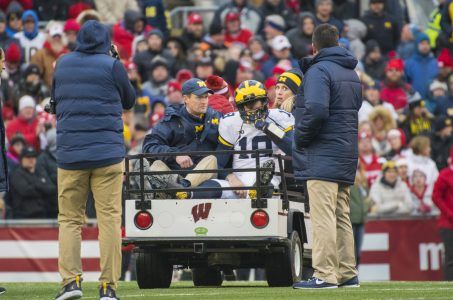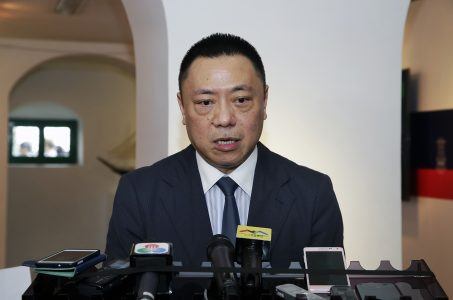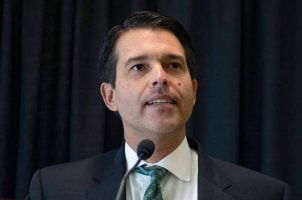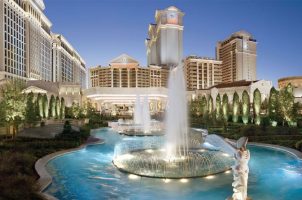Nevada Gaming Board Issued Seven COVID-19 Complaints After Close to 12,000 Site Visits
Posted on: September 4, 2020, 08:53h.
Last updated on: September 5, 2020, 10:50h.
The Nevada Gaming Control Board undertook more than 11,795 inspections or observations at gaming venues statewide since June 4. The goal was to ensure compliance with state coronavirus regulations, according to data released on Thursday. But those official visits led to only seven formal complaints.

The compliance checks began when Nevada casinos could reopen after months of closures. In June and July gaming board officials conducted more than 10,000 inspections or observations at casinos and licensed gaming sites in smaller enterprises.
That works out to about 172 visits a day for the 58-day period. In August, the board’s staff undertook another 1,795 inspections or observations.
Gaming board staff explained to Casino.org the difference between “observations” and “inspections” relates to the original purpose an agent went to a gaming property. The visit is called an inspection if that was the initial purpose agents went there. But if an agent was sent to a gaming property to investigate an alleged gaming crime, and while there, agents also made COVID-19 compliance checks, that is an observation.
The gaming board also reported that since June 4, it initiated 189 “regulatory cases” based on what agents saw during visits. These are instances of alleged material noncompliance.
For each of the seven cases coming from the 189 total, the Nevada Gaming Commission, a companion panel to the gaming board, will preside over a hearing. Board members act like a judge does in a courtroom, and will determine the fine, if any.
Numbers Not Surprising, Law Expert Says
Anthony Cabot, Distinguished Fellow in Gaming Law at UNLV’s Boyd School of Law and a former chair of the gaming law practice at the Lewis Roca Rothgerber Christie law firm, said the volume of complaints and inspections was not surprising.
The volume of early inspections indicates the Gaming Control Board gave this the highest regulatory priority and intended to set lofty expectations for casino compliance,” Cabot told Casino.org. “The number of inspections is not surprising, given this emphasis.”
He points out the board’s enforcement division has about 90 full-time, police-certified field agents who worked on the inspections or observations. Initially, other board agents assisted the enforcement agents, the gaming commission’s statement said.
Cabot further explained that “in June … [health and safety] protocols were new, and some implementation errors [were] … expected. Likewise, some casinos may have had challenges in conforming guest behaviors consistent with social distancing.”
He contends it is “consistent that [about] 10 percent of inspections resulted in regulatory cases. These numbers should decrease in the future.”
A regulatory case is often resolved by “communications” with a casino, which can then “alter its operations to assure future compliance,” Cabot further explained. It also can “serve as a warning that future … noncompliance may result in disciplinary action.”
In fact, the seven disciplinary actions are “more surprising,” Cabot noted. He explains that “disciplinary actions are more common when the violations result from intentional violations, an indifference to regulatory compliance, or repeated violations.”
Fines are the “normal resolution” to these violations, he confirmed. But the gaming commission is given “broad discretion. The fines could be as low as $10,000, or in the millions,” Cabot added.
Gaming Board Chair Urges Safeguards
With Labor Day weekend starting, Nevada Gaming Control Board Chairperson Sandra Douglass Morgan said in a statement released this week that “It is incumbent on every gaming operator to remind employees and customers to properly wear face coverings and to comply with occupancy limits and social distancing protocols to mitigate the spread of COVID-19.”
Related News Articles
Most Popular
VEGAS MYTHS BUSTED: Golden Gate is the Oldest Casino in Vegas
Las Vegas Overstated F1 Race’s Vegas Impact — Report
Most Commented
-
End of the Line for Las Vegas Monorail
— April 5, 2024 — 90 Comments -
Mega Millions Reportedly Mulling Substantial Ticket Price Increase
— April 16, 2024 — 6 Comments -
Long Island Casino Opponents Love New York Licensing Delays
— March 27, 2024 — 5 Comments
















No comments yet